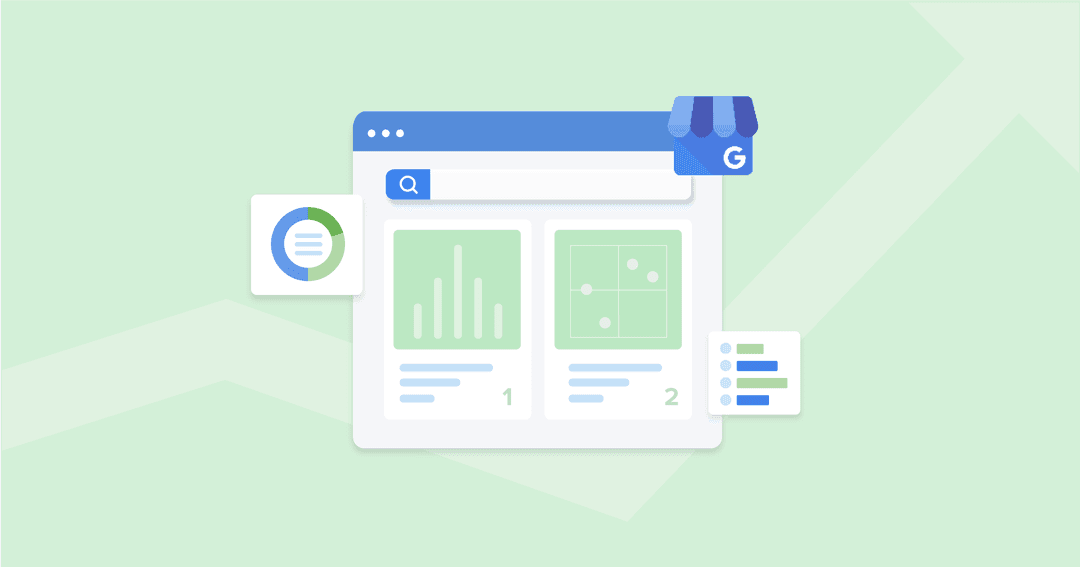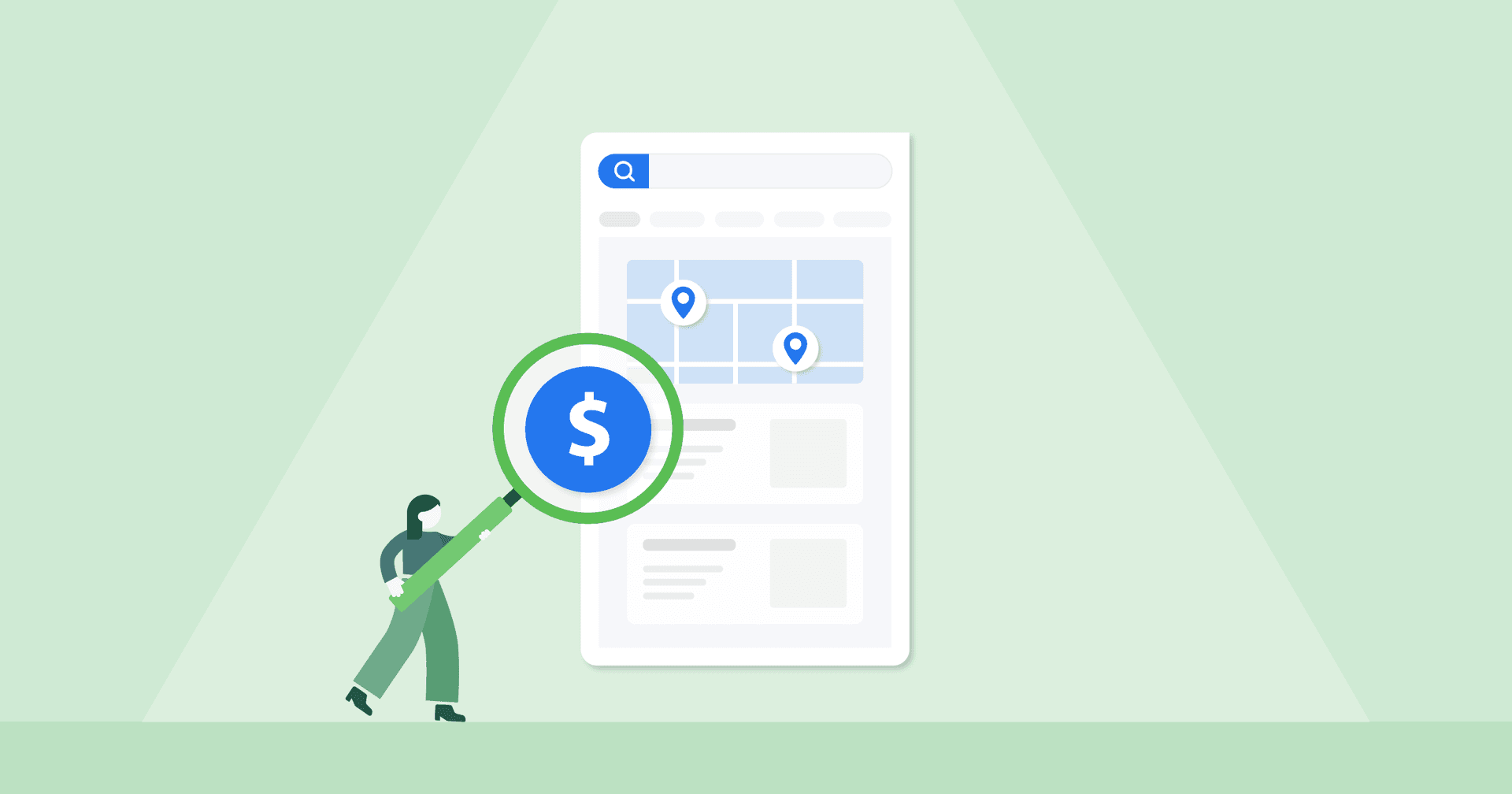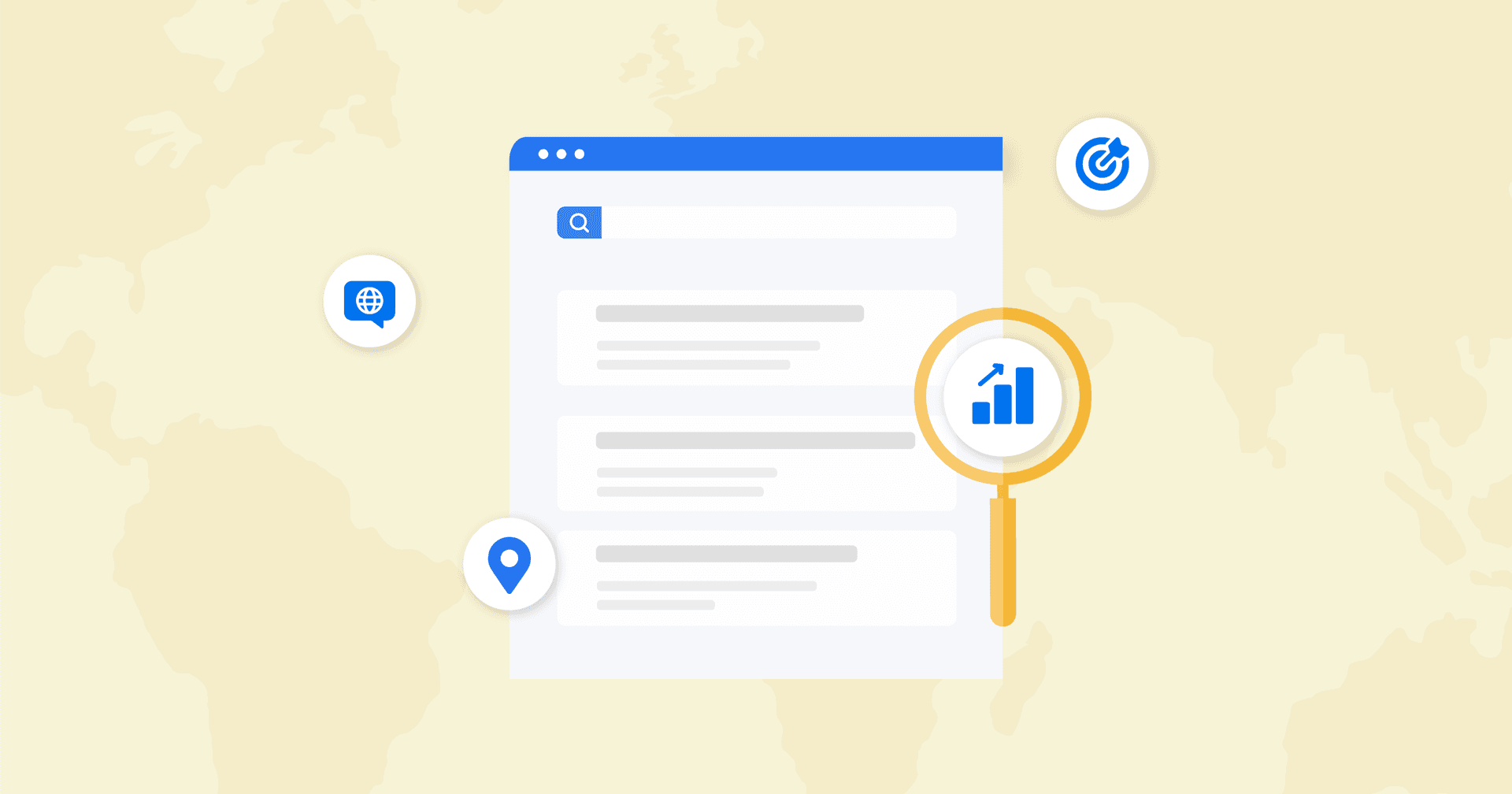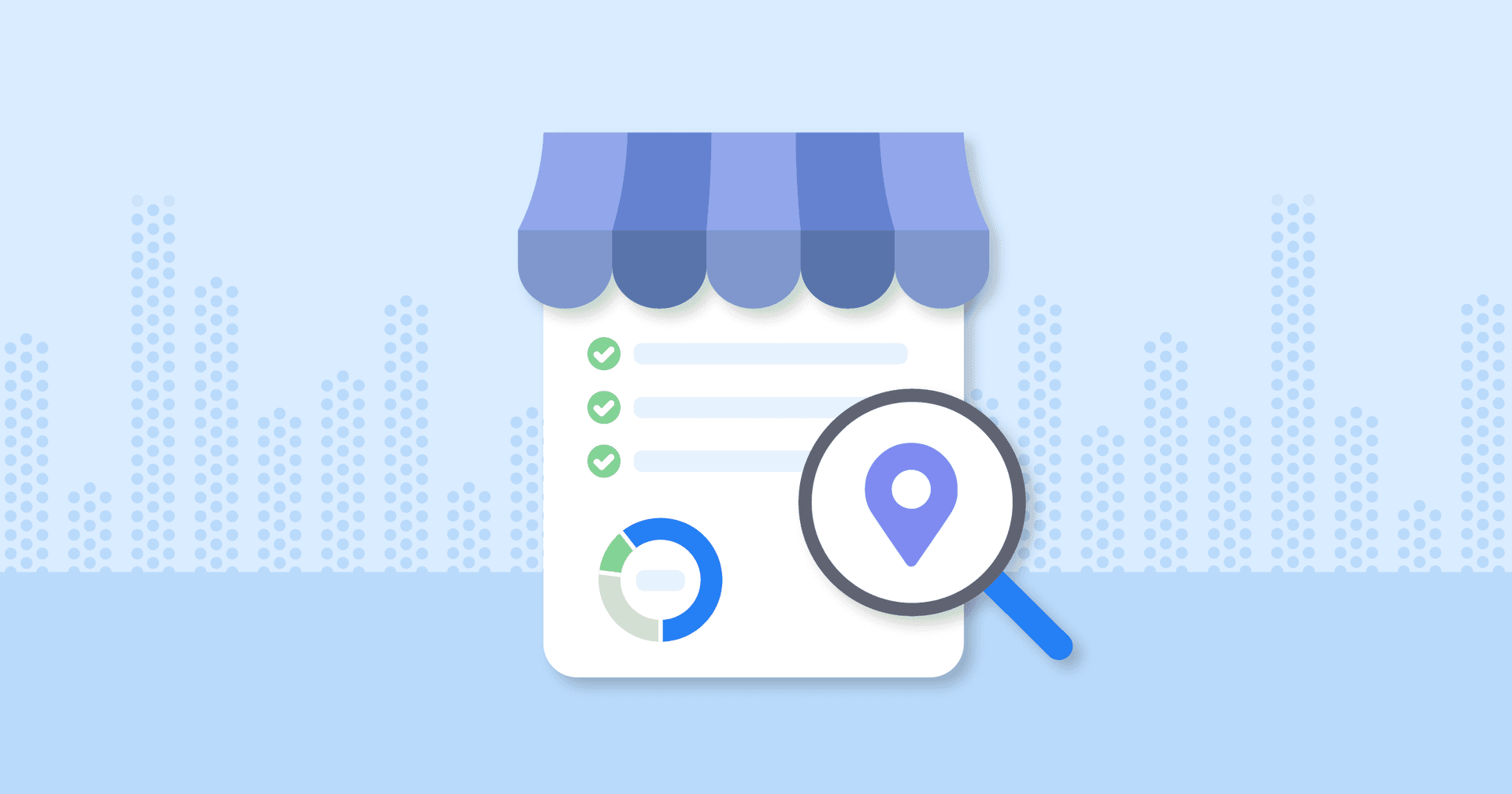Table of Contents
QUICK SUMMARY:
By implementing effective local SEO strategies, marketing agencies improve client results and enhance their own reputation in the process. In this article, we’re highlighting 10 local SEO strategies designed to help agencies boost their clients' visibility in local search results. From optimizing Google Business Profiles to conducting local keyword research, these actionable tips are tailored to attract more foot traffic and increase conversions for businesses that depend on nearby customers.
Every day, potential customers search for local businesses on their phones, eager to make a decision. And if your client's business isn’t showing up in those local search results, they're missing out on valuable opportunities. As a marketing agency, you already understand the importance of visibility—but are you fully leveraging local SEO to capture those nearby customers?
Focusing on local markets with a targeted SEO strategy puts your clients exactly where their customers are searching—right when they’re ready to buy. With 50% of smartphone users visiting a business within a day of conducting a local search, optimizing local SEO drives foot traffic, boosts conversions, and builds lasting customer loyalty.
When your clients win, your agency’s reputation grows too. In this blog, we’re diving deep into the local SEO strategies that will turn your client’s business into a local success story worth lining up for.
What Types of Clients Benefit Most From Local SEO?
With so much of our daily lives happening online, virtually every business can benefit from a solid SEO strategy—but that doesn’t mean every business needs local SEO. So, who does? Primarily, local SEO is most effective for local businesses that rely on foot traffic or cater to a specific geographic area like:
Hotels, restaurants, cafés, and bars
Medical and legal practices
Home services businesses like contractors, landscapers, and plumbers
Brick-and-mortar retail stores
Unlike ecommerce stores or online service providers, these businesses depend on local customers—and local SEO is what brings nearby searchers straight to your client’s door.
I saw a gap in the market to help small & local businesses. They are often forgotten about by bigger agencies & smaller agencies try to upsell them too many services meaning the budget quickly runs out. I saw potential in the market to focus solely on local SEO. It also allows me to directly contact the business owner and not go back & forward on any marketing decisions. This massively speeds up any of the decision making process which makes our services very efficient. Getting a ROI for a small & local business is very rewarding as well. It's a great feeling to work with a client for a year and see their business grow.
Guy Hudson, Founder, Bespoke Marketing Plans
How Does Local SEO Work?
Typically, when someone performs a Google search, its algorithm quickly scans its index to deliver the best results based on these SEO factors:
Proximity: How close the business is to the searcher.
Relevance: How well the business matches the search query.
Prominence: How established the business is online. Think backlinks, reviews, and overall online presence.
But local SEO ranking factors are a bit different. For local searches—like “electrician near me” or “best pizza in Chicago”—Google pulls up the Google Map Pack (or Local Pack). The Local Pack is like the VIP section for local businesses, highlighting three top spots, complete with business information like location, reviews, and phone number. With 42% of local Google searchers clicking into map pack results—getting your client’s business to show up here is essential for local visibility.
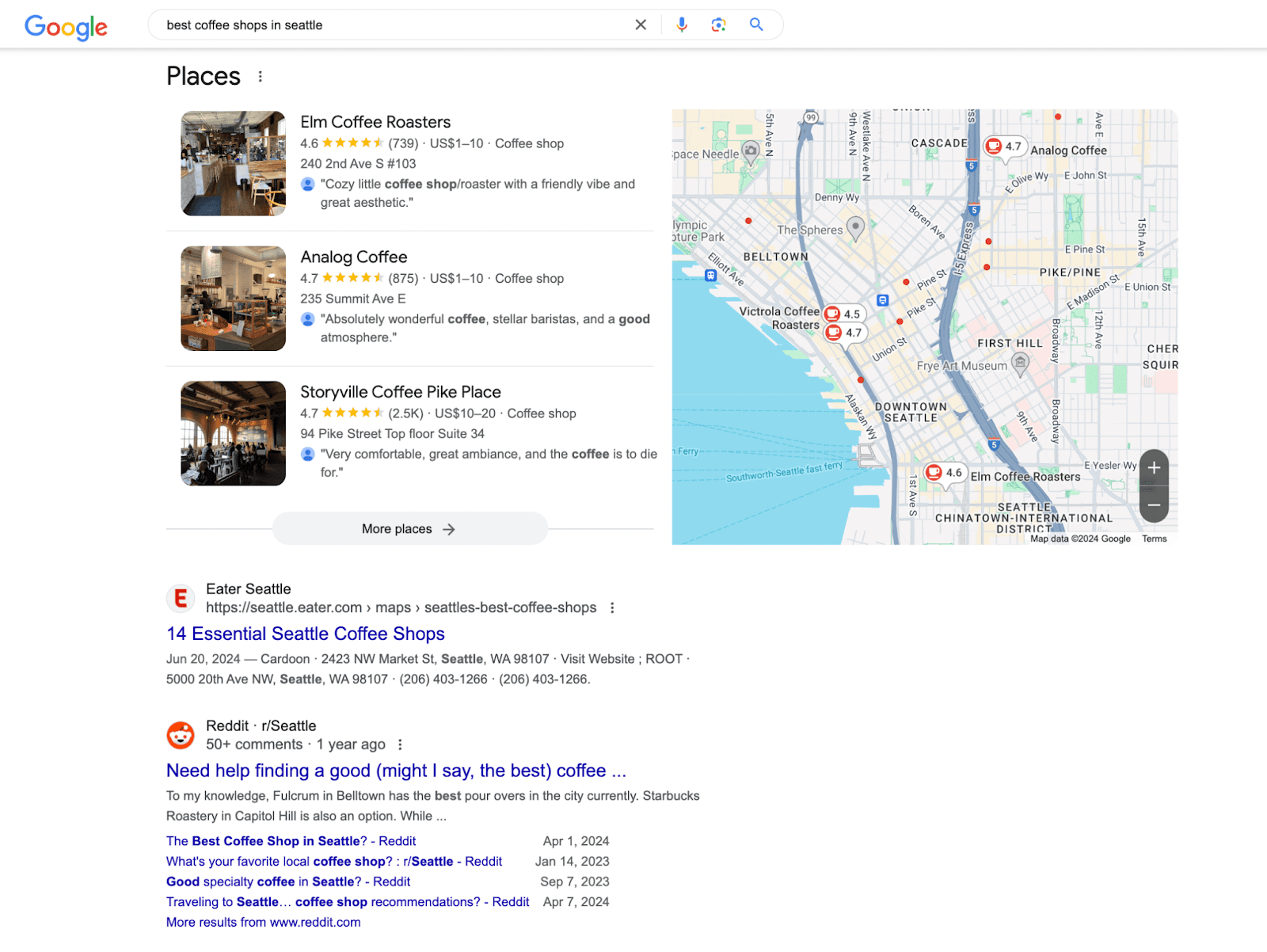
When deciding which businesses to feature in local search results, Google looks at a few key factors:
Location: Where is the searcher, and how close is the business? Proximity matters.
NAP Consistency: Is the business’s Name, Address, and Phone number the same everywhere online? Even little details, like “Avenue” vs. “Ave,” can throw off search results.
Google Business Profile: Is it fully optimized and up to date?
Online Reviews and Star Rating: Google loves stars, but it also cares about the quantity of reviews. More reviews + better ratings = higher ranking.
Social Media Engagement: Are people checking in, sharing, and chatting about the business online?
If you’ve ever searched for a restaurant in a new city, you know how important it is for businesses to show up in these results. Whether someone’s hunting for the perfect greasy breakfast sandwich or scouting a great spot for a first date, local SEO makes sure your clients are right there when it counts.
Want to show your clients why appearing in the Local Pack matters? The AgencyAnalytics SEO Proposal Template makes it easy to break down local SEO strategies and highlight the value of boosting local visibility. With clear data and actionable insights, you’ll help clients see how local SEO drives real results for their business.
10 Local SEO Strategies To Try With Your Clients
Ready to take your client’s business from hidden gem to local legend? Here are 10 local SEO tips and strategies to connect them with nearby customers.
1. Know the Audience + Neighborhood Vibe
Marketers love to say, "If you're talking to everyone, you're talking to no one," and that’s spot-on for local SEO. Every neighborhood has its own personality and your client’s content should reflect that.
Think about it. A trendy downtown cafe has a completely different vibe than a family-friendly restaurant in the suburbs. Getting these neighborhood-specific details right will help your clients stand out in local search results.
Local SEO Tip: Use SEO tools like Google Analytics or Facebook Insights to gather community dynamics, then create ultra-targeted content, ads, and keyword strategies that speak directly to your clients’ local audience.
2. Conduct Local Keyword Research
Keyword research is a staple of any SEO strategy, but for local search engine optimization, you have to be even more precise. When trying to find local keywords, focus on geo-specific terms, including explicit searches that mention location (like “bakery in Chicago”) and implicit searches (like “bakery near me”). These keywords are pure gold because they connect your clients with nearby searchers who are ready to act. In fact, 76% of people who perform “near me” searches visit a business within a day! That's one of the things that makes local SEO important, the target audience is close at hand!
Agency Tip: Track the performance of local keywords and show your clients how "near me" searches are driving real results with AgencyAnalytics’ customizable SEO report templates.
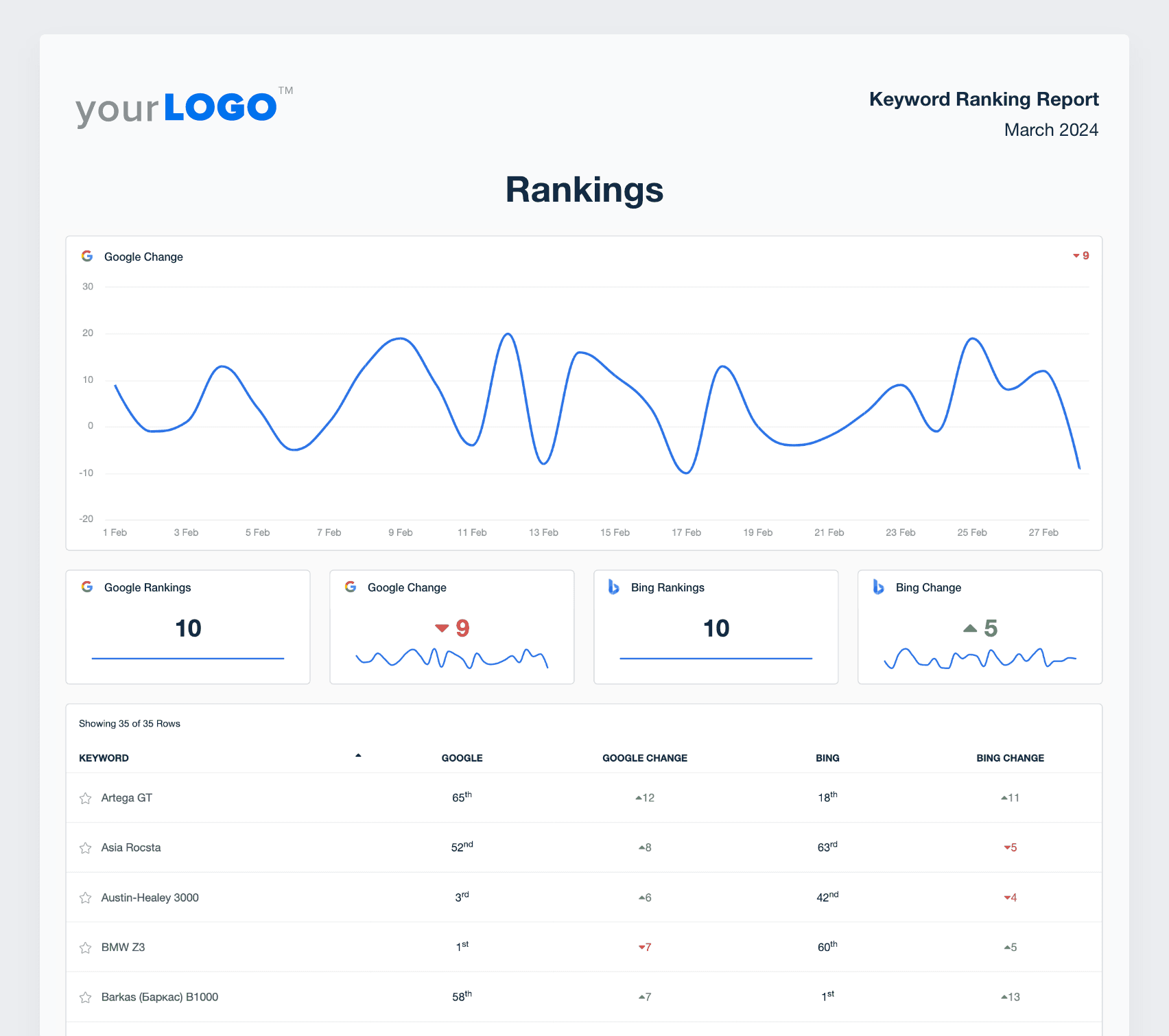
3. Create Localized Content
Just like regular SEO, creating fresh, relevant content is essential for local SEO success. If your client doesn’t have a blog yet, it’s time to start. Focus on topics that resonate locally, like:
New products or services
How-to guides for industry-related services
Local news and events
Interviews with local experts
Be sure to weave in city names, neighborhoods, and even local slang. Hyper-localized content signals to both Google and customers that your client’s business is tied to the community—boosting their local search ranking.
Agency Tip: Build out an editorial calendar centered around local events and seasons— think local festivals, seasonal menus, or neighborhood happenings.
For Local SEO; location location location. I like to ensure there are plenty of clues for Google to see exactly where this service is being performed; if you are located in Denver, make sure it is in the metadata, and sprinkled throughout the content. Don't go crazy with keyword or geo stuffing, it ruins the flow of content and it doesn't work. Put the location in the title tag, the H1, the meta description, and then I like to add it to the final conclusive paragraph with the Call to Action. Try to avoid stocky images if at all possible, or look for non descript stock photos that aren't the ones everyone sees everywhere, they stick out like a sore thumb. Add keywords to your images alt tags, but as with content, keep it descriptive and natural sounding. Finally, I like to make sure my URLs are nice and neat before they are launched; avoid filler words like "and" "in" "or" and make them easy to read and remember.
Rachel Jackson, Lead SEO Specialist, Wit Digital
4. Focus on Local Backlinks
Local backlinks are another powerful way to improve local SEO. When your client gets links from trusted local sources—like businesses, local business directories, news outlets, and community organizations—Google recognizes them as a trusted part of the community. The more quality local backlinks your client has, the stronger their ranking.
Encourage your clients to build local connections by:
Sponsoring local events.
Collaborating with nearby businesses for content or promotions.
Partnering with local bloggers or influencers.
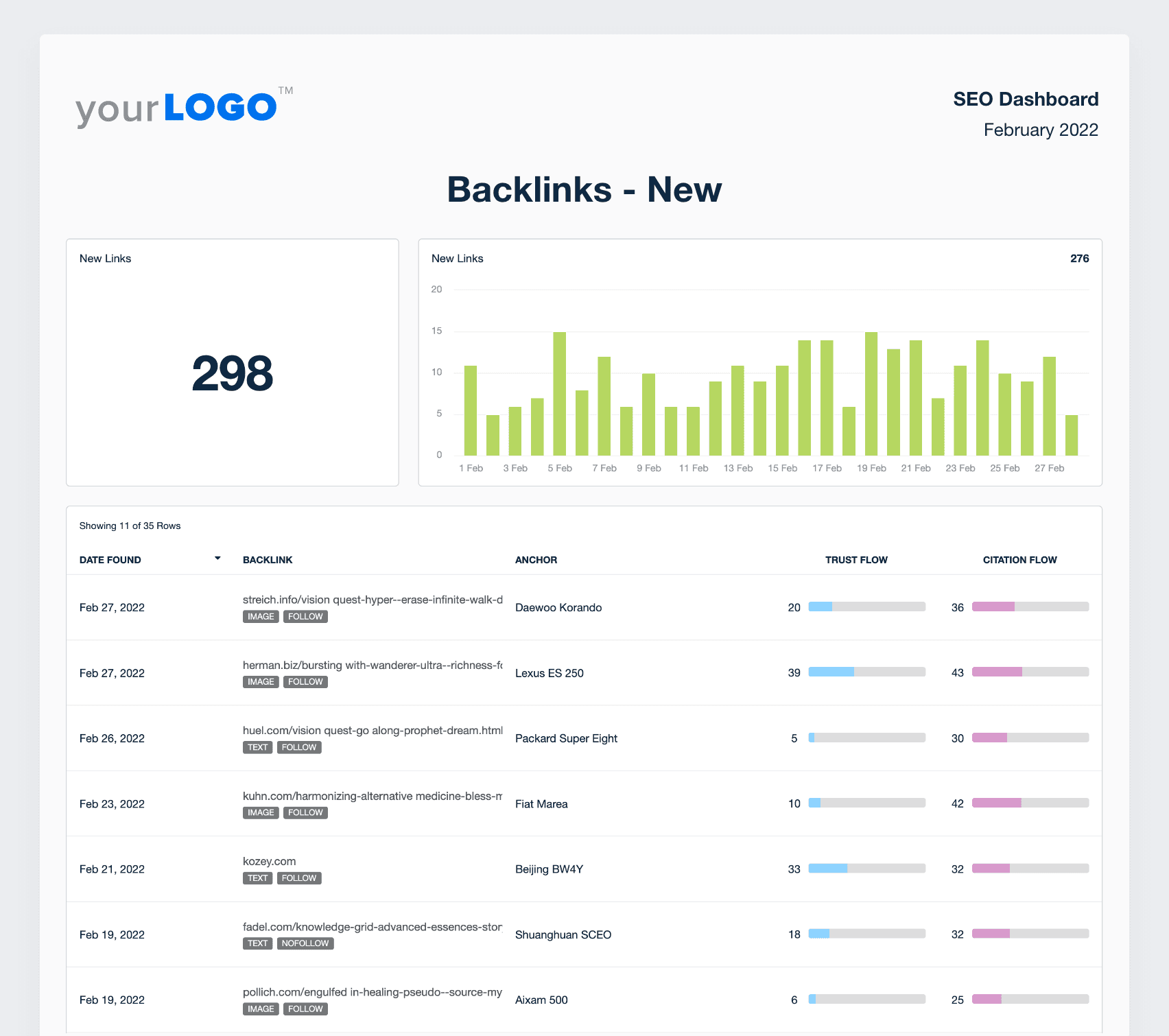
The AgencyAnalytics SEO dashboard makes it simple to track and present your clients’ backlink growth, helping you demonstrate progress and build trust. Try it free for 14 days!
5. Optimize the Client’s Google Business Profile
With over 90% of global search traffic, Google is the king of search engines—and nearly half of all Google searches have local intent. That makes your client’s Google Business Profile (formerly Google My Business) an integral part of your local SEO strategy.
Here’s a brief rundown of what a fully optimized Google Business Profile should include:
Name, Address, and Phone Number (NAP): Consistency is key—make sure it’s accurate everywhere.
Business Categories: Choose the most relevant categories so Google knows exactly what your client offers.
Hours of Operation: Keep these up-to-date, especially for holidays.
Website: Include a direct link for easy customer access.
Services or Products: Clearly list offerings, highlighting popular ones for maximum impact.
High-Quality Photos: People love visuals—show off their location and products to attract more attention.
Reviews: Encourage happy customers to leave feedback.
Customers are 2.7x more likely to trust a business with a complete profile—and 50% more likely to make a purchase. But optimizing your client’s Google Business Profile isn’t exactly a one-and-done task. You need to keep it active too.
How? Use Google Posts to respond to reviews and share updates or events. This shows Google and potential customers that the business is active and engaged, improving your client’s chances of climbing to the top of local searches.
Agency Tip: Tracking Google Profile metrics like clicks for directions, call clicks, and photo views provides clients with clear evidence of your local SEO efforts—and you can do it in just a few clicks with AgencyAnalytics. Try it free for 14 days!
Real estate investing is often location-specific. Leveraging local SEO tactics such as optimizing Google My Business profiles, creating location-specific landing pages, and earning local citations helps us connect our clients with interested prospects in their target areas.
Omar Muñoz, Co-Founder, REInvestor SEO
6. Local Citations and NAP Consistency
Google is, undeniably, critical for local SEO, but it’s not the only place your client’s business information lives. Citations—mentions of their business name, address, and phone number (NAP)—are scattered across sites like Yelp, Yellow Pages, and social media. Keeping NAP details consistent across all platforms is essential for boosting local search rankings.
Even small inconsistencies, like different phone numbers or abbreviations could confuse search engines and harm rankings. The good news? Tools like Yext or BrightLocal audit and correct these discrepancies—saving you time and boosting your client’s credibility.
7. Remain Active on Social Media
Likes and comments aside, getting involved with the local community on social media is major for local SEO. This often leads to more brand mentions, shares, and traffic to their site—all of which positively impact local SEO rankings.
Post regularly about local events, share community updates, and interact with the client’s audience by responding to comments and questions.
Agency Tip: Consider partnering with local businesses or influencers for cross-promotions to get more eyes on your client’s brand and increase local visibility.
8. Encourage Local Reviews
As someone who never picks a restaurant without checking reviews, it’s reassuring to know that 75% of people do the same when looking up local businesses. While positive views are essential for establishing credibility, Google also values quantity—the more reviews, the better your client’s chances of ranking higher in local search results.
Agency Tip: Automate the review process with follow-up emails after a sale or service, making it easy for customers to leave feedback.
9. Implement Local Schema Markup
Schema markup is like adding labels to your client’s website so search engines understand the content better. It tells Google key details like business hours, service areas, or events. Adding local schema boosts the chances of showing up in valuable features like Google’s Map Pack or Knowledge Graph.
While it sounds technical, tools like Google’s Structured Data Markup Helper make it easy—no coding required. It’s a simple way to improve local SEO and get more visibility in local search results.
10. Mobile Optimization for Local SEO
With Google now prioritizing mobile-first indexing—and over 63% of searches happening on mobile devices—having a mobile-friendly website is non-negotiable for local SEO (and SEO in general).
Make sure your client’s website:
Loads quickly on mobile devices.
Has user-friendly, responsive navigation.
Includes easy-to-use features like click-to-call buttons.
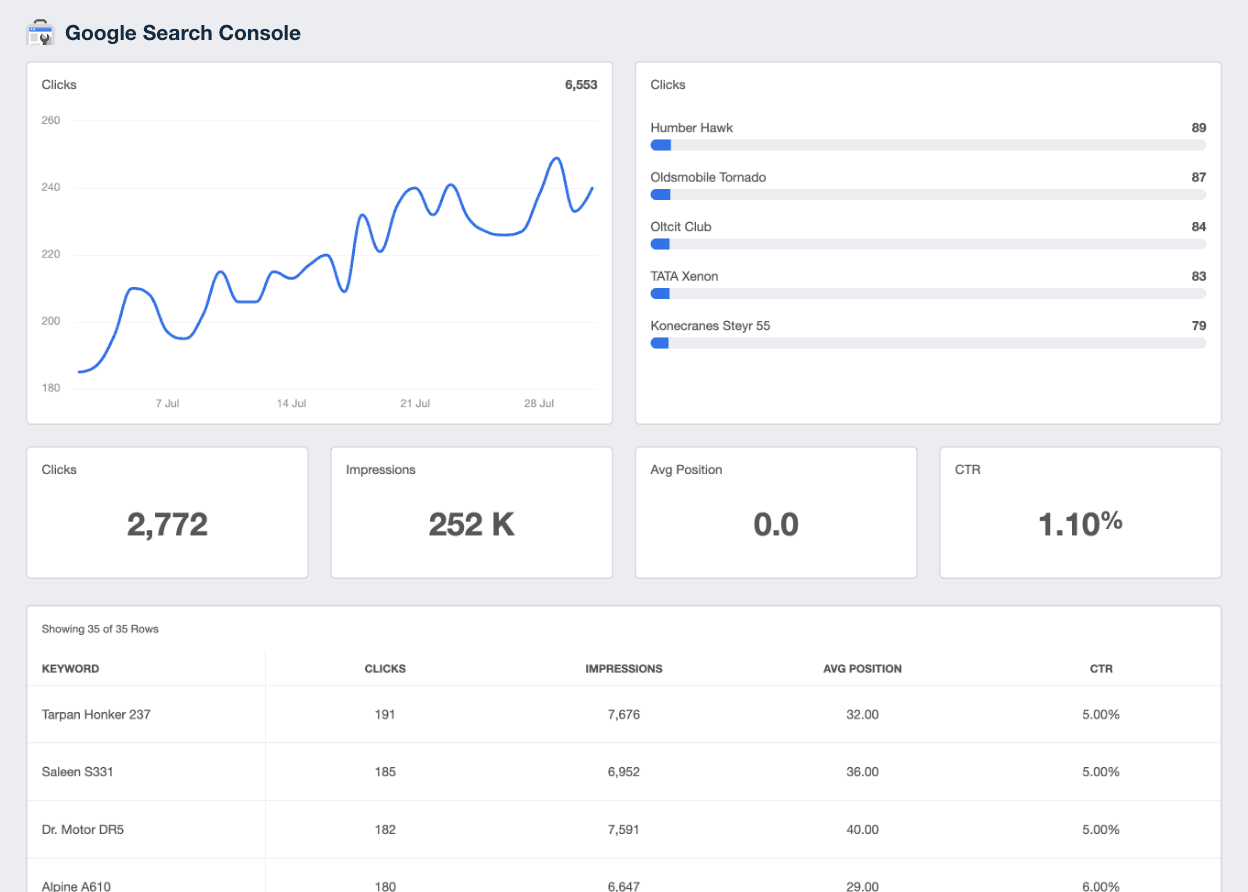
Keep your client’s website running smoothly by identifying issues that could impact local search rankings. Explore the full suite of features in AgencyAnalytics—free for 14 days.
How to Track Local SEO Success To Prove Agency ROI
Even the best strategies lose momentum without solid ROI to back them up. Showcase the impact of your local SEO with these key metrics:
Local Search Traffic: Measure how much traffic comes from local searches.
Local Keyword Rankings: Use local SEO tools like Semrush or Ahrefs to track keyword rankings over time.
Google Business Profile Insights: Look at profile views, clicks for directions, website clicks, and call tracking metrics to gauge engagement.
Conversion Rate: Track how many visitors from local searches are converting into customers.
Local Backlinks: Monitor new and lost backlinks.
Traffic Source Segmentation: See where traffic is coming from (Google Maps vs. organic).
Agency Tip: Local SEO is a long-term game. Significant results take time, especially in competitive markets. Set realistic expectations while offering short-term wins like paid ads or promos to keep clients engaged along the way.
We actually put AA in place very early on. My experience in digital advertising told me that clients want real time access to reporting... even if they dont always use it. We still build a lot of custom reports, but we're able to also customize AA in a lot of ways to automate that process. We've created multiple dashboards for clients, based on the multiple things we do for them.
For example, we work with 15 location group of medical practices. We need to keep track of every location's ad budget, as well as their local SEO separately. So, we have custom dashboards built that help them with that process, while helping our team know where to focus their energy.
Ryan Burch, Owner, Tobie Group
Building Long-Term Success With Local SEO
Local SEO is more than a strategy—it’s the foundation for long-term growth. By helping your clients thrive in their local markets, you’re setting them up for more foot traffic, stronger customer relationships, and lasting success.
With advanced tactics like tracking key performance metrics, mobile optimization, and local link building, you’ll ensure your clients stay ahead where it matters most. Does local SEO require an ongoing effort? You bet. But with the right approach, you’ll drive measurable results for your clients—and set your agency up for long-term success.
AgencyAnalytics SEO Tools bring all these local SEO metrics together, so you’ll spend less time reporting and more time driving real results for your clients. Try it out for free today—no credit card required.

Written by
Kali Armstrong is a freelance content writer with nearly a decade of experience crafting engaging, results-driven copy. From SEO blogs to punchy short-form pieces, she combines strategic insight with authentic messaging to captivate audiences and drive results.
Read more posts by Kali ArmstrongSee how 7,000+ marketing agencies help clients win
Free 14-day trial. No credit card required.



